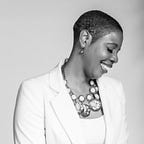Find Your Inner Esther
The biblical story of Esther is a powerful metaphor for my life and professional career. It’s one of few stories in the Bible I vividly remember from my childhood, and one that I apply in my daily life.
The story of Esther is about a beautiful Jewish woman who married the king of Persia. Unaware of Esther’s Jewish heritage, the king issued a command to kill all the Jews in the land, including the women and children.
Mordecai, Esther’s uncle, learned of the plan and immediately went to Esther and petitioned that she intercede on behalf of the Jewish people and his family. Stricken with fear, Esther immediately understood both the personal and collective ramifications of Mordecai’s request. She knew that she could be killed for making the request or disclosing her Jewish heritage. Nevertheless, Mordecai continued pleading: “For if you remain silent at this time, relief and deliverance for the Jews will arise from another place, but you and your father’s family will perish. And who knows, but that you have come to your royal position for such a time as this?” (Esther 4:14 NIV).
As I reflect back, my entire career path has been filled with “Esther” moments — times when I found myself thrust into “royal” positions as a Black woman leading in predominately White organizations. Like Queen Esther, I have been paralyzed with fear, distress, anxiety and even doubt about whether I was deserving of my lofty positions. What I know for sure is that many of us, at some point in our careers and lives, have questioned our ideas, our intellect and even our basic way of knowing. This ability to question makes us human.
It is in these times that I am reminded of the enormous gift and burden of my “unseemly” heritage. It is in these moments of doubt or questioning that I plead with my inner self, asking, “What if I have come to this royal position for such a time as this?” An affirmative answer to this singular question has not only guided my actions, but over time, transformed the way I view my individual privilege, power and responsibility. It has shifted my individualist paradigm to include a much grander idea of what it means to lead in community. You see, Mordecai’s petition required Esther to look outside of herself and choose to act on behalf of others. That is the kind of leader for social change that I believe we need today.
As a consultant who helps organizations and leaders find essential interconnections between Strategy, Equity and Leadership, I believe the field of leadership development too often makes people believe that leading and leadership is reserved for a small few — “the special people.” This perspective is both short-sighted and dangerous. The truth is, we all possess unique gifts, talents and skills that enable us to lead in our communities in different ways. In essence, We Are All Esther. We play our roles — individually and collectively — in transforming this royal place we call Earth.
We all have important work to do. So, take a deep breath, inhale life and begin the magical journey of finding ways to offer your God-given talents to this complex world. Remember that just like Esther, we all wrestle with fear. It’s what we do with that fear that can change us, and our world. We can choose to close our eyes and wait for simpler solutions that will never come, or we can turn our collective OUTRAGE about the current state of the world into concrete ACTIONS. Yes. It is time to turn Rage into Courage.
Join me on the journey:
Follow Dr. Martin!!
Instagram: Navigate Courage
Twitter: DrRobinmartin-Navigate Courage
Medium: Find Additional Articles
